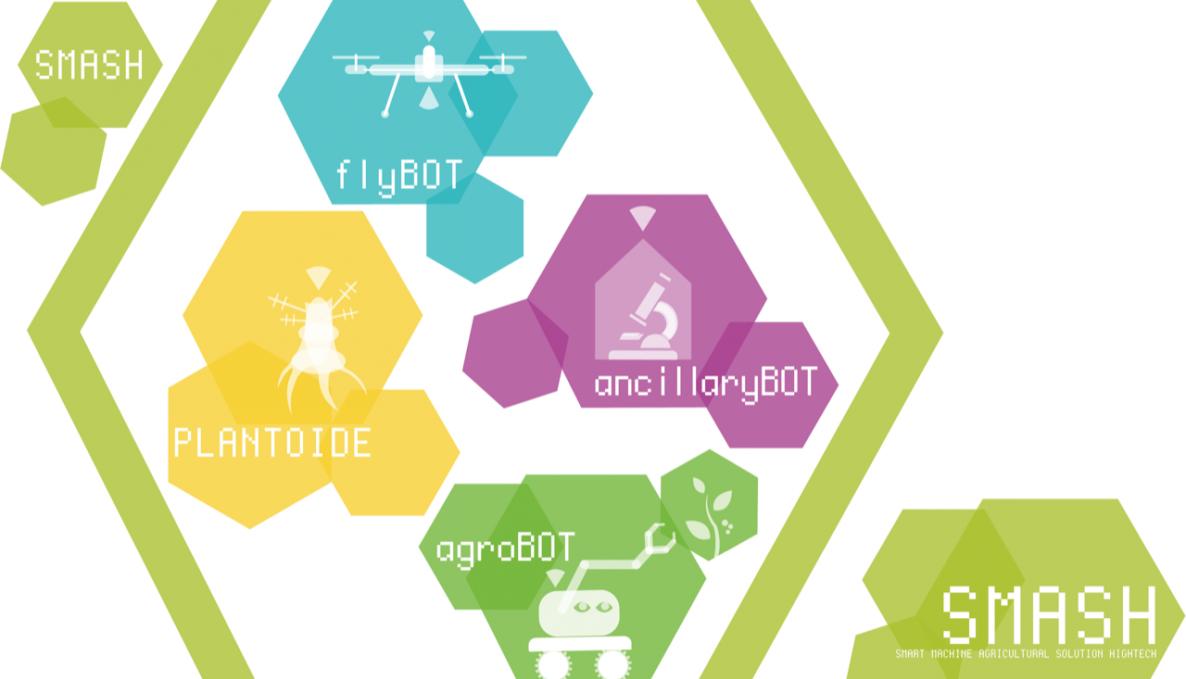PRECISION agriculture technology FOR INNOVATIVE and sustainable farming systems: tuscany region-funded project SMASH is ready to test vineyard robots

AgroBot is designed to move through the vineyard and target the wine and agriculture sustainability. Acrobot is one of the robots developed by the Sant’Anna School Biorobotics and Life Sciences researchers working on the SMASH project - Smart Machine for Agricultural Solutions Hightech). Robots are currently being tested on Castellani’s grapevines in Pisa province. The SMASH project is aimed at monitoring the vineyard ecosystem and managing high-quality grapes using navigation and sensing techniques.
The Tuscany Region RS POR FESR 2014-2020-funded project is a partneship including E.D.I. Progetti e Sviluppo srl, Yanmar R&D Europe srl, Avmap srl, Base srl, KODE Chemoinformatics srl, the Dipartimento di Scienze e Tecnologie Agrarie, alimentari, ambientali e Forestali dell’Università degli Studi di Firenze, Centro di Micro-BioRobotica dell’Istituto Italiano di Tecnologia, Copernico srl, Dorian srl and agronomist Filippo Giuntini.
“Precision farming aims to ensure functional ecosystems and optimise resources”- says Director of Life Sciences Institute Luca Sebastiani. “Thanks to precision agriculture, we can distribute the exact amount of water/ fertilizers/energy/workforce crops need. As a result, precision agriculture 4.0 can reduce crop waste and the impact on the environment. The modern agriculture 4.0 approach can help to achieve a comprehensive range of ecosystems. As wine managers aim to maximize crop quality or production, agricultural robotics technologies can contribute to create a resilient system in which food crisis and climate change issues are addressed to increase yields and environmental sustainability”.
“We all can see the value in vineyard applications of this kind of robotic technology – explains Professor of Biorobotics Paolo Dario – Automation, Artificial Intelligence and human-augmented robotic intelligence in space missions, surgery, rehabilitation and agriculture are critical to meet the needs in face population growth, climate change, and food security. In addition, human-augmented robotic intelligence can drive double-digit growth in global and Italy’s industrial robotics. Machine learning can contribute to precision agriculture and produce improved health and sustainable ecosystems".
Promoting a comprehensive integration of algorithms, navigation systems and autonomous operation is the focus of AgroBot, as manipulators with soft grippers will be needed in precision agriculture also replacing dexterous human labor. Increased automation in food production can contribute to acknowledge the multifunctionality of the agricultural system; the Sant’Anna School Biorobotics and Life Sciences Institutes research cooperation will support a more sustainable land management.
Finally, Biorobotics professor Gastone Ciuti commented the AgroBot experimental testing process "Validation of algorithms and experiments at the individual plant level must be developed to achieve a positive impact on the environment. We need to increase the efficiency and scale of precision agriculture to drive ecological change in sustainable grapevine cultivation and reduce resource waste”.



